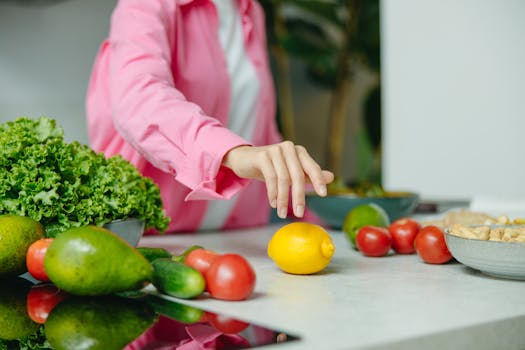
How to Get Enough B12 on a Vegan Diet
Vitamin B12, also known as cobalamin, is a crucial nutrient that plays a significant role in maintaining healthy nerve cells, producing DNA, and forming red blood cells. For those following a vegan diet, ensuring adequate intake of this essential vitamin can be a challenge, as B12 is primarily found in animal products. In this comprehensive guide, we will explore effective strategies to get enough B12 while embracing a plant-based lifestyle.
The Importance of Vitamin B12
Vitamin B12 is essential for various bodily functions. Here are some key roles it plays:
- Nerve Health: B12 is vital for maintaining the myelin sheath, which protects nerves and ensures efficient signal transmission.
- Red Blood Cell Production: It aids in the formation of red blood cells, helping to prevent anemia.
- DNA Synthesis: B12 is involved in the synthesis of DNA, which is crucial for cell division and overall health.
A deficiency in B12 can lead to serious health issues, including neurological problems, anemia, and cognitive decline. According to the National Institutes of Health (NIH), adults require about 2.4 micrograms of B12 daily.
Challenges of B12 for Vegans
Because vegan diets exclude all animal products, obtaining sufficient B12 can be particularly challenging. The primary sources of B12 in the diet include:
- Meat and poultry
- Fish and shellfish
- Dairy products
- Eggs
While some fortified foods and supplements are available, many vegans may not be aware of their importance in achieving adequate B12 levels. A study published in the Journal of Nutrition found that nearly 50% of vegans surveyed were B12 deficient, underscoring the need for awareness and proactive measures.
Sources of Vitamin B12 for Vegans
Fortunately, there are several effective ways for vegans to obtain B12:
1. Fortified Foods
Many food products are fortified with B12, making them an excellent option for vegans. Here are some common fortified foods:
- Plant-based Milk: Almond, soy, oat, and rice milk often have added B12.
- Cereal: Many breakfast cereals are fortified with B12; just check the label.
- Nutritional Yeast: This popular vegan ingredient often contains B12 and adds a cheesy flavor to dishes.
- Meat Alternatives: Products like veggie burgers and sausages can also be fortified.
When selecting fortified foods, always read labels to ensure they contain adequate amounts of B12. For example, a serving of fortified almond milk might provide 1.2 mcg of B12, while a serving of nutritional yeast typically contains around 2.4 mcg.
2. B12 Supplements
If fortified foods aren’t sufficient or easily accessible, B12 supplements are a reliable alternative. They come in various forms:
- Tablets: These are often the most common form of B12 supplements.
- Sublingual Tablets: Dissolved under the tongue, these can enhance absorption.
- Sprays: These are convenient and can be absorbed quickly.
- Injections: For severe deficiencies, healthcare providers may recommend B12 injections.
It’s best to consult a healthcare professional before starting any supplement regimen. A study published in the American Journal of Clinical Nutrition suggests that regular supplementation can effectively maintain adequate B12 levels in vegans.
3. Regular Testing
Monitoring your B12 levels is crucial if you’re on a vegan diet. Regular blood tests can help identify deficiencies early. The Mayo Clinic recommends testing for B12 levels at least once a year for those at risk, including vegans.
Signs of B12 Deficiency
Understanding the symptoms of B12 deficiency can help you take action before serious health issues arise. Common symptoms include:
- Fatigue and weakness
- Nerve problems like numbness and tingling
- Memory loss or cognitive difficulties
- Pale or jaundiced skin
- Shortness of breath and dizziness
If you experience any of these symptoms, consult a healthcare professional for testing and guidance.
Practical Tips for Ensuring Adequate B12
Here are some practical tips to help you maintain adequate B12 levels on a vegan diet:
- Incorporate Fortified Foods: Make fortified foods a staple in your diet. For example, enjoy a bowl of fortified cereal with almond milk for breakfast.
- Keep Track: Use a food diary to monitor your B12 intake from fortified foods and supplements.
- Consult a Dietitian: A registered dietitian can provide personalized advice and help create a balanced vegan meal plan that meets your nutritional needs.
- Educate Yourself: Stay informed about vegan nutrition. Resources like the Vegan Society offer valuable information.
Real-World Examples
Many well-known vegan athletes and celebrities successfully maintain their B12 levels while adhering to a plant-based diet. For instance, renowned vegan athlete Venus Williams credits her plant-based diet for her energy and performance on the tennis court. She ensures adequate B12 intake through fortified foods and regular testing.
Another example is Joaquin Phoenix, who gained recognition for his role in “Joker.” Phoenix has spoken about his vegan lifestyle and emphasizes the importance of being mindful of nutrients like B12.
FAQs About B12 on a Vegan Diet
1. Can I get enough B12 from a vegan diet alone?
It’s difficult to get sufficient B12 from a vegan diet without consuming fortified foods or supplements. Regularly incorporating these into your diet is essential.
2. How often should I take B12 supplements?
The frequency of supplementation depends on the form and dosage. Some people may need daily doses, while others can take larger doses weekly. Consult with a healthcare professional for personalized recommendations.
3. Are there any vegan sources of B12 in nature?
Some algae and fermented foods claim to contain B12, but their reliability is questionable. It’s safer to rely on fortified foods and supplements.
4. What are the risks of B12 deficiency?
B12 deficiency can lead to serious health issues, including anemia, neurological damage, and cognitive decline. Regular monitoring and preventive measures are vital.
In summary, maintaining adequate levels of B12 on a vegan diet is achievable through careful planning and awareness. By incorporating fortified foods, considering supplementation, and monitoring your levels, you can enjoy a vibrant, healthy vegan lifestyle without compromising your nutritional needs.